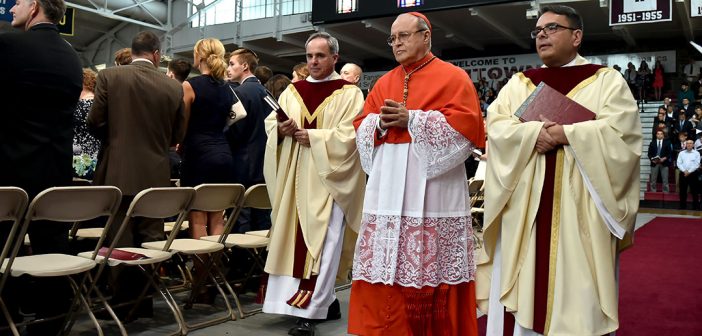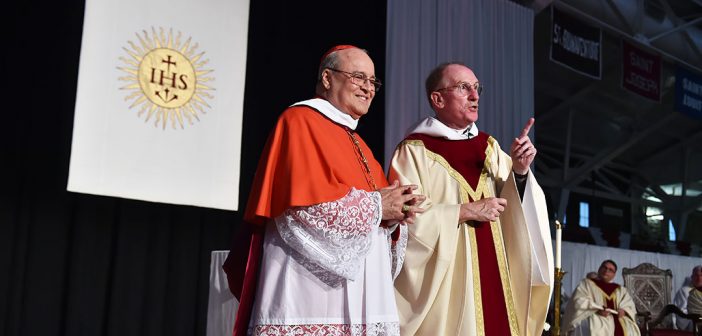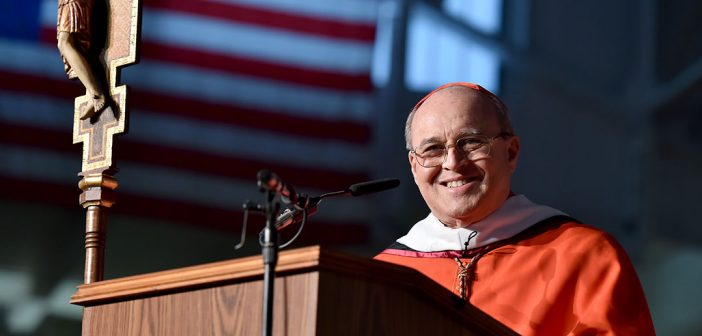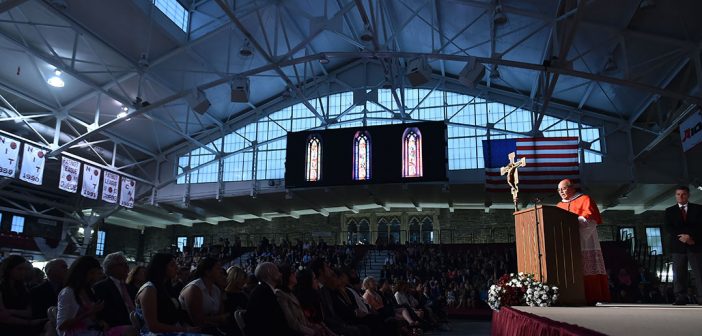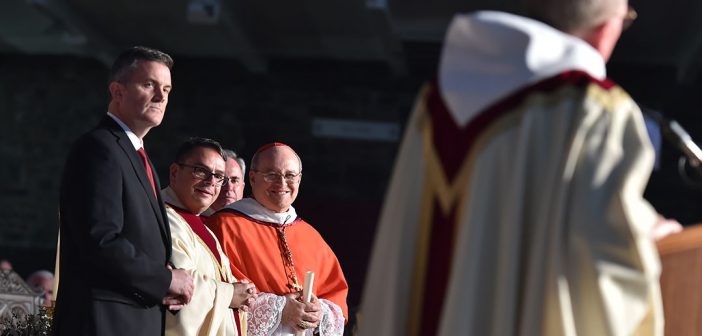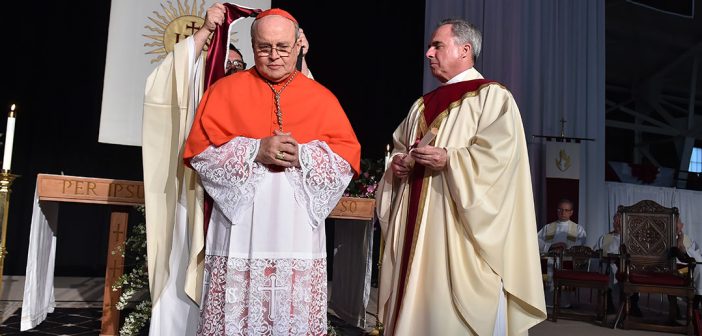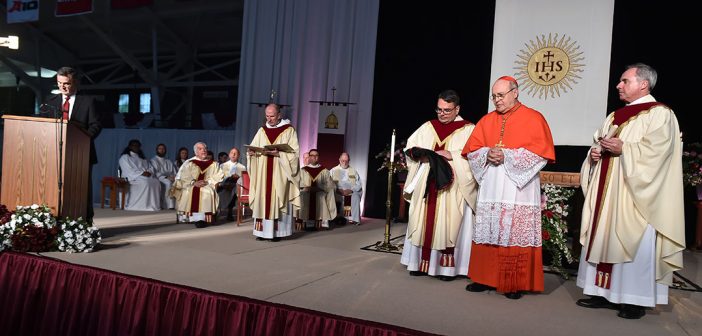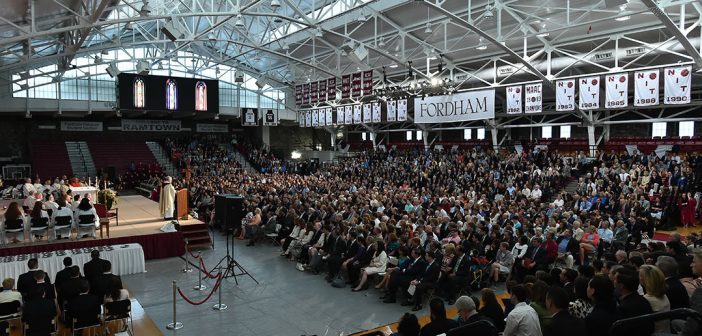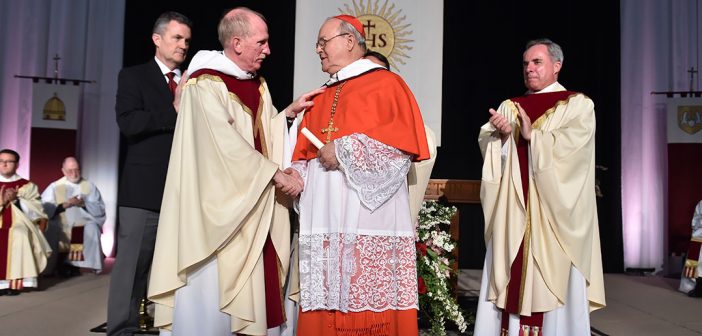Photos by Dana MaxsonFordham mourns the death of His Eminence Jaime Lucas Cardinal Ortega y Alamino, a member of the College of Cardinals and a pillar of the Catholic Church in Cuba.
Cardinal Ortega, the Archbishop of Havana from 1981 to 2016, died on July 26. In 2015, Fordham conferred upon him an honorary degree in a ceremony held at the Rose Hill Gym. The University lauded the Cardinal’s strong leadership, which sustained the Church in Cuba during years of government repression. He is credited today with playing a key role in the Church’s resurgence there.
“Cardinal Ortega was a truly courageous leader whose tireless efforts to promote religious freedom in the face of relentless opposition were an inspiration for all of us,” said Joseph M. McShane, S.J., president of Fordham.
“In a time marked by division, his ministry was a bridge that brought together members of the human family. It was an honor to host him at Fordham in 2015, and we will miss greatly.”
Born in 1936 in the province of Matanzas, Cardinal Ortega studied at the Advanced Institute for Secondary Studies of Matanzas, the seminary of San Alberto Magno, and the seminary of the Foreign Mission in Quebec, Canada, before coming home for ordination, in 1964.
As a parish priest of the Cathedral of Matanzas, he founded a youth movement that spread the Church’s message through theatrical performances. He was named Archbishop of Havana in 1981, and in that role, he created parishes, rebuilt more than 40 parish houses and churches, and established the Diocesan Council for Pastoral Initiatives. He ordained 22 Cuban priests, which was no small feat, given the Cuban government’s hostility toward the Church at the time.
Working with the Cuban Bishops’ Conference, Cardinal Ortega helped organize in 1986 the Cuban National Ecclesial Encounter, an event that proved to be a milestone in the Church’s revival. It sparked a new era of dialogue and awareness among Cuban Catholics, and ultimately brought about the 1998 visit of Pope John Paul II, who four years earlier had named Ortega a Cardinal.
Under Cardinal Ortega’s leadership, the Church in Cuba became an effective mediator between the government and dissidents. In 2010, the Cardinal worked with the government of Raul Castro to secure the release of 126 political prisoners. In recent years, his role as a mediator expanded beyond the island’s shores. In 2014, when secret negotiations between the governments of Cuba and the United States were underway to re-establish diplomatic relations, he visited Washington D.C. on a trip that was ostensibly for a lecture at Georgetown University.
Instead, he hand-delivered a letter from Pope Francis, whom he helped select as a Cardinal elector, to President Obama at the White House. The Pope sent a similar letter to the President of Cuba; the outreach was key to the Pope’s efforts to bring about dialogue between the governments of the two nations.
